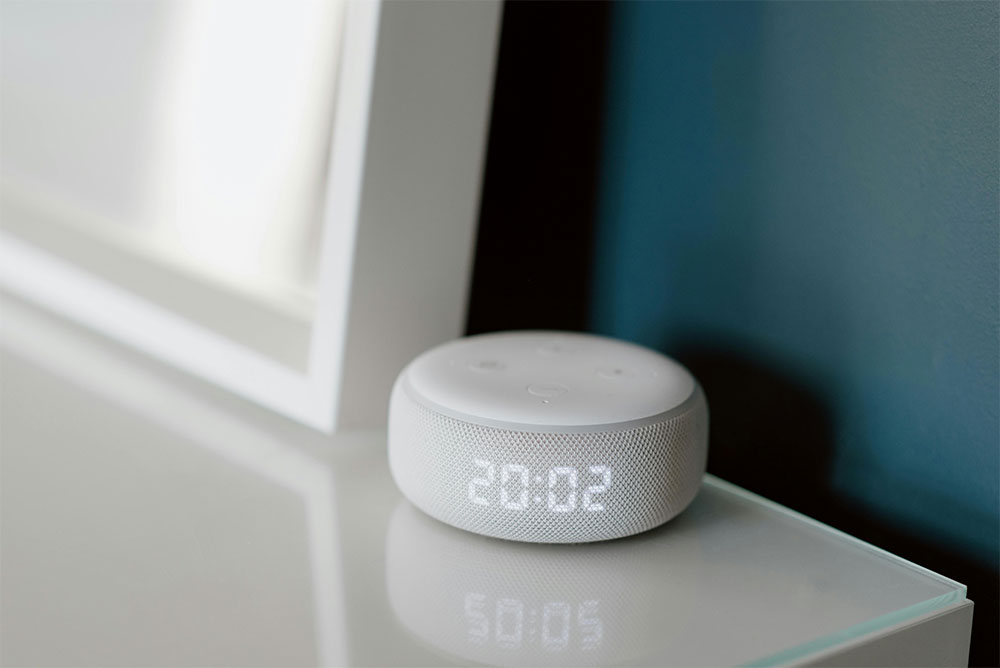Let us explore melatonin and dementia’s role in sleep enhancement and cognitive health, alongside potential risks and dosage guidelines.

Christopher Ravn
Key Takeaways
1. Melatonin, a hormone regulating sleep-wake cycles, may improve sleep quality and potentially slow cognitive decline in dementia patients.
2. While generally safe, melatonin use in elderly dementia patients requires careful dosage and monitoring for potential side effects and interactions.
3. Research suggests melatonin might delay MCI progression to dementia, but more studies are needed to confirm its long-term effects on cognitive health.
Table of Contents
1. Melatonin And Dementia
2. Can Melatonin Improve Sleep For Dementia Patients?
3. Does melatonin Cause Alzheimer's?
4. Can Dementia Patients Take Melatonin?
5. Melatonin Side Effects In Elderly With Dementia
6. Is Melatonin Safe For Elderly Patients?
7. Frequently Asked Questions About Melatonin And Dementia
Melatonin And Dementia
The pineal gland, which is a small endocrine gland located in the brain, is crucial to sleep and wake cycles. It is the key element that produces melatonin, which is important to regulate our circadian rhythms. Melatonin gets released when the brain registers that it is dark, which makes it easier to fall asleep and stay asleep throughout the night.
Melatonin is crucial to physiological processes and helps to synchronize our body to promote sleep during the night and being awake throughout the day. It also helps to protect the body against free radicals and oxidative stress, influence the immune system to fight infections and help reduce inflammation.
Melatonin is important for your sleep cycle and thus, when it is at a normal level, it helps to promote a consistent sleep-wake cycle, alleviate sleep disorders like insomnia and sleep apnea, help with cognitive functions like memory and learning, and help reduce the risk of Alzheimer’s and Parkinson’s disease.
Melatonin is essential in treating patients with Alzheimer’s and Dementia as it is known to improve sleep quality. Reduce agitation and aggression in dementia patients, may help reduce oxidative stress and inflammation, and may help improve cognitive function in dementia patients.
How Is Melatonin Linked To Dementia And Alzheimer’s Progression?
Melatonin is said to decline with age and is lower in those who have Alzheimer’s and Dementia patients. It is believed that this decline in melatonin could be a factor in cognitive impairment and Dementia.
There are some hypotheses regarding the benefits of melatonin in cognitive preservation that may help fight against oxidative stress and inflammation, regulate the sleep-wake cycle, and inhibit amyloid-β fibril formation and neuronal damage and health.
There are a few studies that have showcased the possibility of melatonin slowing Alzheimer’s disease’s progression from MCI to dementia. It is stated that melatonin may slow down cognitive decline and reduce the conversion from MCI to Alzheimer’s disease.
Several studies have explored the potential of melatonin to delay the progression from MCI to full-blown dementia. These studies suggest that melatonin supplementation may:
Can Melatonin Improve Sleep For Dementia Patients?
The quality of sleep is important for overall health and its impact on dementia progression is important. This is because lack of sleep increases the risk of cognitive decline, aggression, falls, decreased quality of life, and a reduced rate of performing sensory activities for dementia.
Studies have showcased the effects of melatonin on sleep quality in dementia patients and stated that melatonin improves the quality of sleep in Alzheimer’s patients. Another study conducted by the Journal of Alzheimer’s Disease showed that melatonin reduced sleep disturbances and improved sleep.
Does melatonin Cause Alzheimer's?
The pineal gland’s hormone, melatonin, has undergone extensive research regarding its potential impact on Alzheimer’s disease (AD). While some studies suggest that melatonin may have neuroprotective effects and slow down AD progression, others have raised concerns about its potential negative effects on cognitive function and sleep quality.
There are a few studies that show that the long-term use of melatonin has been linked to either improvements or declines in Alzheimer’s Disease. The findings show that melatonin showed that there may be some improvement in cognitive function. Some clinical studies have shown that melatonin may improve sleep quality and reduce the amount of daytime sleep in those with Alzheimer’s Disease.
The Importance Of Natural Light Exposure Alzheimer’s Prevention
The importance of natural light exposure for Alzheimer’s prevention is said to be linked with the synthesis of melatonin. This plays an important role in regulating the circadian rhythm and sleep-wake cycles.
The exposure of natural light therapy for dementia has an impact on managing Alzheimer’s symptoms, such as reducing evening agitation in individuals with Alzheimer’s Disease. There have been some studies that have also found that bright light therapy or light therapy lamps can possibly increase the quality of sleep.
Join families who have found relief with EVY LIGHT®
Click below to see how EVY LIGHT® is helping others
Can Dementia Patients Take Melatonin?
Before starting melatonin treatment, it is important to assess a patient’s sleep-wake cycle. This is also known as a person’s circadian rhythm, and it is important to know their sleep timing, duration, and quality of sleep. With this information, it is then used to determine their sleep issues, find means to tailor treatment levels and help to minimize any side effects that come from melatonin, such as nausea and headaches.
- Monitoring sleep quality using assessments such as PSQI.
- Access cognitive function using MMSE assessments.
- Adjusting melatonin treatment based on the patient’s response.
- Using bright light therapy to optimize treatment outcomes.
Recommended Dosages Of Melatonin For Elderly Dementia Patients
The dosages of melatonin for elderly dementia patients are subject to their conditions. For patients with severe dementia, they will need to start with a dose of 0.25 to 0.5 mg of melatonin. For patients with moderate levels of dementia, they will need to start with a dosage of 0.5 to 1 mg and those with mild dementia will need a dosage of 1 mg.
As for patients with mild cognitive impairments, they are recommended to take around 0.5 to 1 mg of melatonin. For moderate cognitive impairment, they would need to take around 1 to 2 mg of melatonin and those with severe cognitive impairment would need to take 0.25 to 0.5 mg of melatonin.
Melatonin Side Effects In Elderly With Dementia
Though melatonin is used to treat insomnia and other sleep issues, it may have different effects on elderly patients such as drowsiness that may last throughout the day, restlessness and irritability, vivid dreams or nightmares, and for some it may be nausea or vomiting.
- Have a sleep diary to track sleep patterns and monitor any changes.
- Adjust the melatonin dosage as needed.
- Melatonin should be taken at bedtime and any signs of daytime sedation should be monitored.
- Regular exercise and brain exercises to prevent Alzheimer’s help reduce the risk of falls and improve overall health. Adjust dosage if the patient experiences nightmares, vomiting, or dizziness.
Are There Any Risks For Dementia Patients When Using Melatonin?
There have been concerns raised about the risks and negative impacts of melatonin on cognitive function. Some studies have indicated that melatonin may have little or no effect on sleep outcomes in Dementia patients. There has been a study published by the Journal of Alzheimer’s Disease that stated patients with mild cognitive impairment (MCI) who took melatonin had their memory performance worsen.
Though these studies do show that there is a potential risk of taking melatonin in dementia patients, it is important to understand the limitations and biases of the studies. There is the possibility of methodological flaws, varying degrees of impairment, and also the duration of melatonin treatment.

Is Melatonin Safe For Elderly Patients?
- Possibility of increasing the risk of falling in elderly patients with dementia. The American Medical Association has stated that melatonin may increase the risk of falls in older adults with dementia.
- May increase the risk of cognitive impairment in older adults with MCI.
- May interact with blood thinners, diabetes, and blood pressure medications and increase the risk of side effects.
- Melatonin should be used with caution in elderly patients who are suffering from dementia or Alzheimer’s disease.
- Monitor elderly patients and see if the melatonin is causing any side effects, such as drowsiness and confusion.
- Always start with a low dosage of melatonin and increase as needed.
- Do not take melatonin over a long period of time, as the side effects of long-term usage are still unknown.
- Consult your healthcare practitioner before taking melatonin.
Natural Vs. Synthetic Melatonin In Dementia And Alzheimer's Care
Both natural and synthetic melatonin have been used to treat sleep disturbance and cognitive impairment in dementia and Alzheimer’s patients. Let us look at the differences and benefits of using natural melatonin (dietary) and synthetic melatonin and understand the general safety of using them.
Natural melatonin (dietary) is produced in the penial gland and can be obtained from food sources such as walnuts, tar cherries, salmon, rice bran, and oats. The benefits of this are that it may help promote sleep quality and increase antioxidants and anti-inflammatory effects. Because this is something that the body produces, it might also have fewer side effects.
The issue with this, however, is controlling the dosage and timing. The possibility of it interacting with other medications or supplements may not be suitable for those who are taking certain medications or are suffering from certain conditions.
As for synthetic melatonin, it is a supplement that can be purchased from pharmacies in the form of tablets and even capsules. The benefits of taking synthetic melatonin are that you can control the dosage and timing, it is effective in promoting sleep quality, and it is more convenient than taking it from natural sources. However, the limitations of this are that it may cause side effects such as headaches and nausea, the possibility of interaction with other medications, and is not suitable for those who are under medication or have a medical condition.

Frequently Asked Questions About Melatonin And Dementia
Can Melatonin Improve Sleep For Dementia Patients?
The quality of sleep is important for overall health and its impact on dementia progression is important. This is because lack of sleep increases the risk of cognitive decline, aggression, falls, decreased quality of life, and a reduced rate of performing sensory activities for dementia.
Does Melatonin Cause Alzheimer's?
The pineal gland’s hormone, melatonin, has undergone extensive research regarding its potential impact on Alzheimer’s disease (AD). While some studies suggest that melatonin may have neuroprotective effects and slow down AD progression, others have raised concerns about its potential negative effects on cognitive function and sleep quality.
There are a few studies that show that the long-term use of melatonin has been linked to either improvements or declines in Alzheimer’s Disease. The findings show that melatonin showed that there may be some improvement in cognitive function. Some clinical studies have shown that melatonin may improve sleep quality and reduce the amount of daytime sleep in those with Alzheimer’s Disease.




































